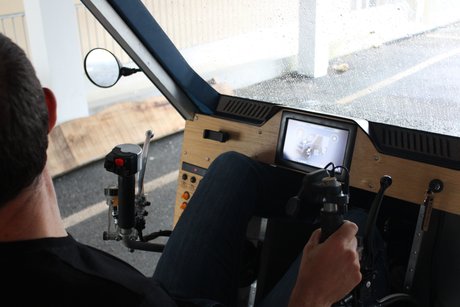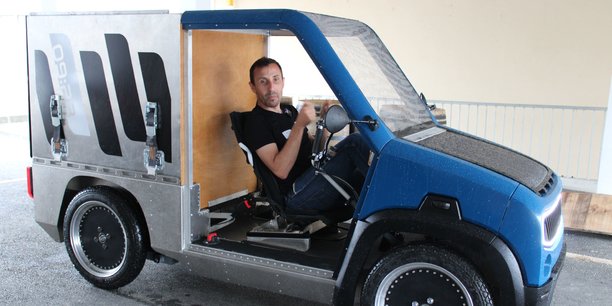The road is long but also winding to manufacture a small vehicle on a large scale. The director of Midipile Mobility, Benoît Trouvé, a former automotive worker turned light vehicle designer, sees this among his peers. “Of the 50 teams in the Extreme Challenge organized by Ademe, fifteen teams created a prototype and only three managed to collect funds to go to the production model. » In this trio, there is the Charentais start-up Midipile, which announces funding this June 5 of two million euros.
The team, which is designing a light vehicle dedicated to logistics and low-carbon mobility, has attracted the favor of several investment structures. Half of the fundraising concerns equity with the participation of the citizen fund Team for the planet, business angels, Welike Startups and the Lespinasse boiler maker in Charente which will host the pilot line. The other half is completed by subsidies from Bpifrance, the Nouvelle-Aquitaine Region, Ademe through competition and Europe.
A round of financing completed not without difficulties in a field where the barriers to entry are gigantic. “The industrial start-up model is very risky, there are very few funds able to respond to it. You can almost count it on the fingers of one hand in France. The automotive industry is a sector that changes enormously and very quickly today with very strong international competition. We feel a bit miraculous compared to our sector”reacts for La Tribune Benoît Trouvé.
Industrial support
To close the incubation phase that began in 2020, about fifteen employees took over the walls of the Lespinasse boiler factory, a few kilometers from Angoulême. And this, with the aim of deploying a line of manufacture and assembly of a pilot for the vehicle with a range of 100 km and able to carry 300 kg of payload. The aspiring manufacturer wants to produce five pre-production models in 2025 and about sixty the following year.

With its handlebars and pedals, the light vehicle’s control system is halfway between a car and a bicycle. (photo credit: MG / The Tribune)
Certain synergies will emerge from this new beginning, while the site is full of capabilities in laser cutting, welding and painting. ” We are exchanging a lease for a little over two years for shares in the company. The advantage for us is to avoid investing in machines. If we crash, we won’t have paid rent for two and a half years. It’s very interesting because behind it, everyone wants it to succeed. In addition to this financial exchange, there is an interesting strategic and entrepreneurial mentoring », says Benoît Trouvé.
Also a way to facilitate industrial start-up without the need to build a factory or rehabilitate a wasteland. In Deux-Sèvres, the entrepreneurs of the start-up company Kate chose, for example, to buy the website of the manufacturer Nosmoke to start manufacturing an electric microcar this year. Or when the reindustrialization of territories also involves the support of growing startups to existing industries.
” Between the bike and the car, there is space »
Faced with the colossal investments required in the automotive sector, French startups are struggling with few resources. This is the case in the region of Avatar Mobilité, which counts on funding from Europe to validate its prototype or of Gazelle Tech, which has been chasing a third fundraiser and the approval of its light and eco-designed vehicle for several years.
Midipile will be able to benefit from the support of Moove Lab in Paris, a mobility incubator, which has chosen it along with about ten other startups in the sector to join its ranks until the fall. ” What we appreciated about Midipile is that they differentiate themselves in a market where it is not easy to differentiate yourself.mentions Clément Guillemot, director of startup programs for Via ID within the Moove Lab. The team has automotive knowledge and is relatively young. She is able to create a vehicle that fully satisfies a need. »
If industrial projects are difficult to finance, the market opens up for medium vehicles. ” Between the bicycle and the car, there is a place for vehicles that better respond to the new usesargues Clément Guillemot. The market should open up for this type of vehicle because it complies with changing regulations: ZFEs are coming, thermal vehicles will be banned in 2035 and the notion of frugality of materials is emerging. We see many projects blossoming, there is real momentum. »
A movement stemming from the expectations of the general public to make electric mobility more accessible. In this challenge, Asia finds itself in a hegemonic position with its small, cheap models produced in large series. Large European manufacturers and start-ups will find it difficult to compete without a certain amount of protectionism at the continent’s borders.


